Rapid changes, economic and political upheaval, and intense pressure created a context of volatility, uncertainty, complexity, and ambiguity (VUCA) in Siemens Healthineers Latin America corporate team.
Facing these challenges, how was it possible to create a 139% increase in the number of highly engaged managers and a 46% increase in engagement scores overall?
This case study reviews outcomes of the program and key ingredients of that the company used to create this success…. starting with a foundation of a commitment to people, and leveraging emotional intelligence.
Managing People Not Problems
Siemens Healthineers leadership team in Brazil recognized that VUCA factors were undermining team performance, that old techniques were not working.
As complexity increases exponentially, people get further behind. The VUCA world outside affects people, which affects performance.
They were, said one team member, “Managing problems instead of managing people.”
The team determined to confront the emotional side of these issues head on through a project with Kronberg, Brazil’s experts in emotional intelligence for business.
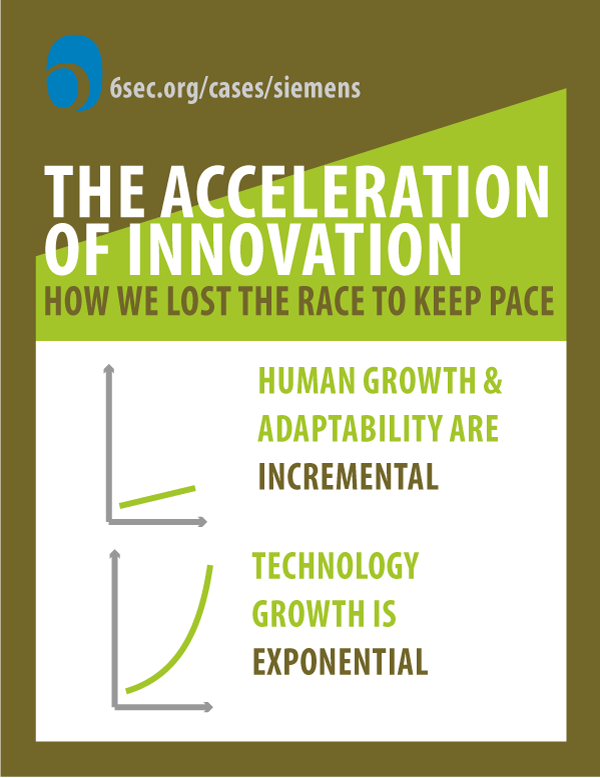
Kronberg utilized personal, leadership, and team assessments from Six Seconds, a global leader in emotional intelligence. The powerful Vital Signs model formed the basis for talking about leader and team performance:
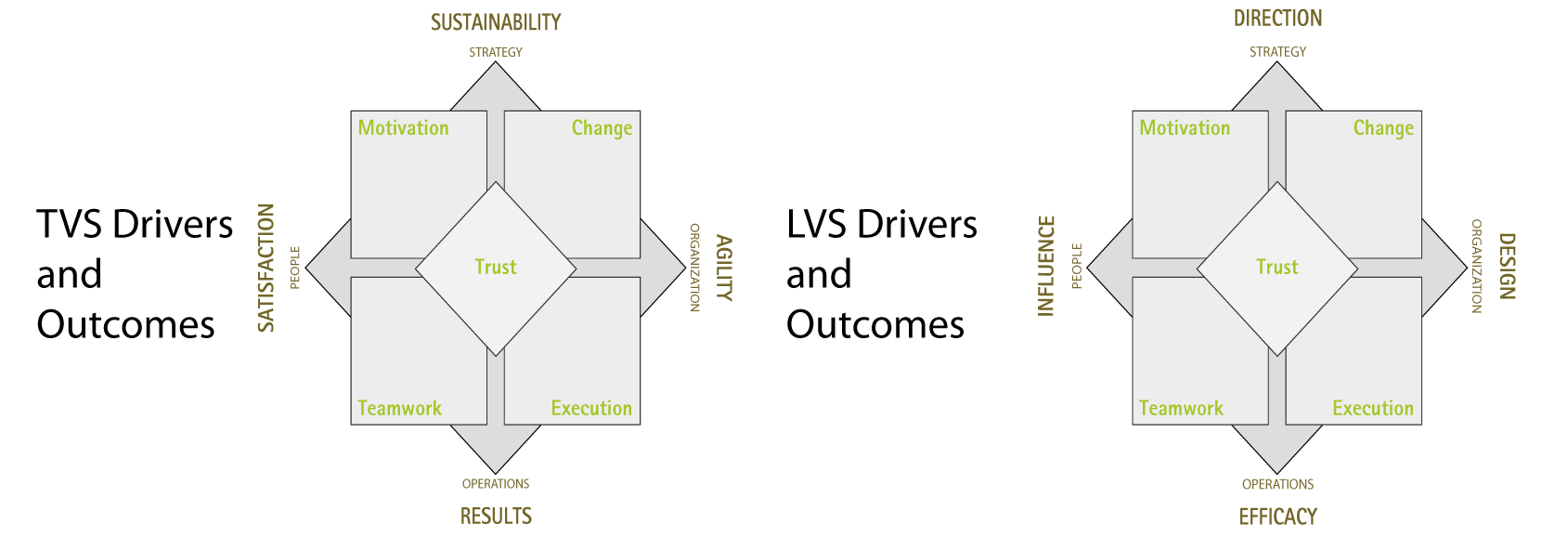
Assessing Progress

The assessments were supplemented by coaching, experiential learning, and retreat-like workshops. Key findings in the full case study include:
- Silos, blame, and distress dominated the volatile work environment.
- Emotional intelligence and trust offered a path forward.
- Building a vital team created the framework for change.
- Core values of belonging, purpose, and teamwork guided the initiative.
- Six Seconds’ assessments yielded actionable data essential to measuring success.
- Open dialogue was critical to creating meaning.
- Developing EQ skills fostered empowerment.
This comprehensive approach increased engagement and dramatically improved key climate driver and outcome scores, as measured by before and after results using an objective assessment of team performance. Here are thepre- and post-program Team Vital Signs (TVS) Engagement Index and percentages:
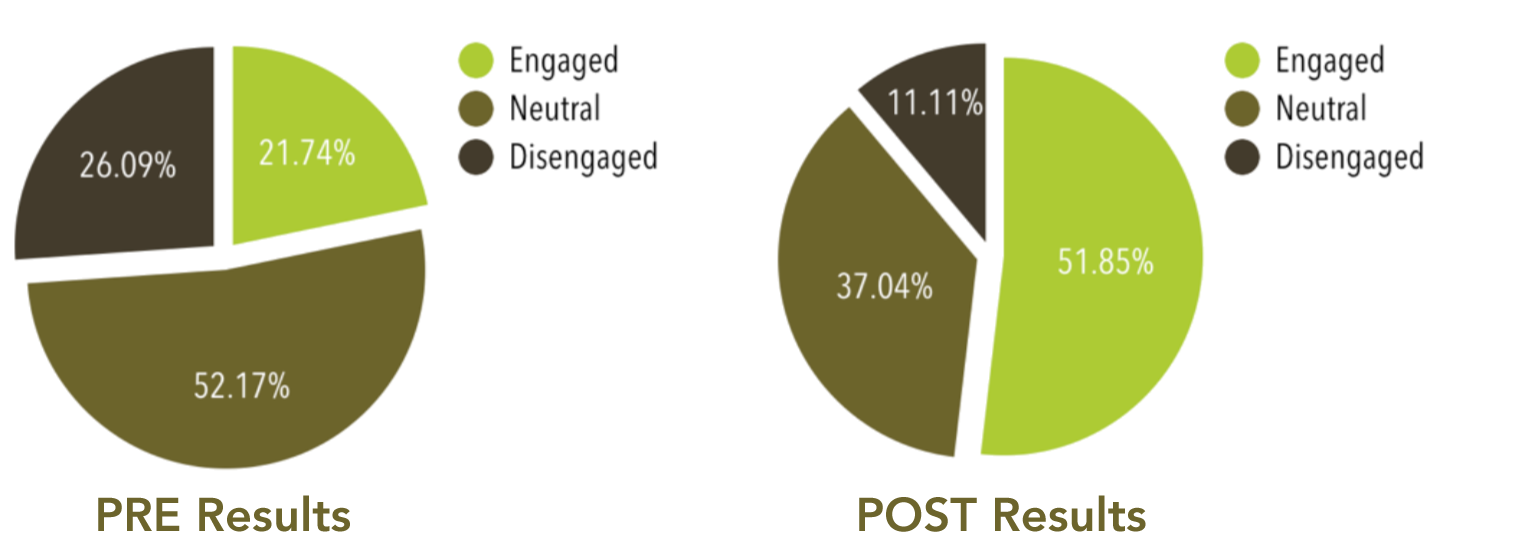
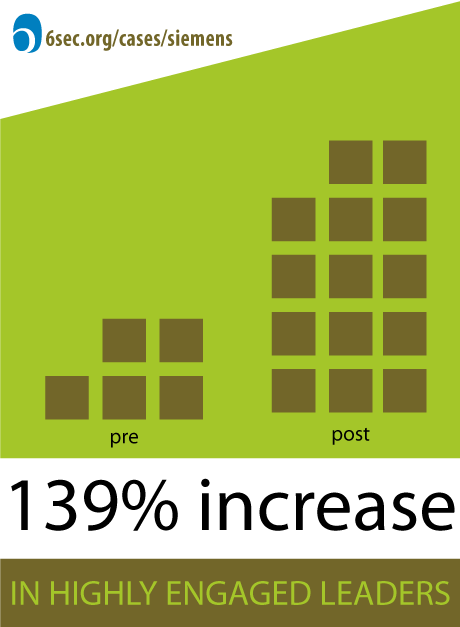
Getting Results
With an overall engagement increase of 46% at the end of the initiative, the future looked brighter for Siemens Healthineers. As one team member said, “I hope the team will continue to improve our EQ level. The impact and results are visible in the organization. I feel that there has been a considerable positive impact in the level of sincerity and trust in the team.”
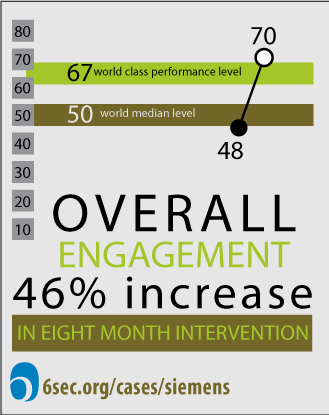
About the Authors
Paul Stillman Ph.D., is Director of Organizational Vitality at Six Seconds. He has over 30 years of experience as a healthcare executive and consultant. Paul leads global efforts to promote Vital Sign, Six Seconds’ suite of organizational assessment tools. He has a Ph.D. in Human and Organizational Systems and is a Life Fellow in the American College of Healthcare Executives. Learn more about these tools at www.6seconds.org/tools
Carlos Aldan De Araujo is a Transformational Master Life Coach, Emotional Intelligence specialist and keynote speaker. He is the CEO and founder of Grupo Kronberg, a Six Seconds’ Preferred Partner, which provides customized business solutions for corporate clients in several industrial segments to generate substantial and sustainable financial impact.
What’s new in emotional intelligence?
Emotional Intelligence at Work: In the Era of AI, What Happens to Human Skills?
Who’s winning the artificial intelligence race: machines or people? Research finds AI investment leads to disinvestment in human skills
Emotional Intelligence at Work: Exploring the Principles of Exceptional Leaders
Check out these 7 valuable leadership lessons to be the best leader you can be and bring the best out of people.
3 Winning Strategies for Successful Change Leadership: Coaching with Emotional Intelligence
Can coaching tools help you lead successful organizational change? Here’s how to build team ownership and drive better outcomes by applying emotional intelligence for a coaching mindset.
Emotional Intelligence at Work: New Research Reveals 5 Practical Tips to Make Workplace Boredom Beneficial
How to navigate boredom in a healthy and productive manner as an employee and as an entire organization. New research reveals key insights.
Emotional Intelligence at Work: Slack Study Finds Massive Benefits to Taking Breaks, but Half of Employees Don’t Take Them
Research from Slack’s Workforce Index found that making time for breaks during the workday improves employee wellbeing and productivity
Emotional Intelligence at Work: The Free, Easy Win Most Managers Are Missing
Gallup study compares the biggest gaps in employee vs. manager perceptions. What are managers’ worst blind spots? What are easy wins they could do better to improve team performance?
- Lessons from Patagonia - May 15, 2018
- How to Lead People in a VUCA World: Siemens Case - April 25, 2018
- Practicing Music: Creating Food for the Soul - March 11, 2018








0 Comments